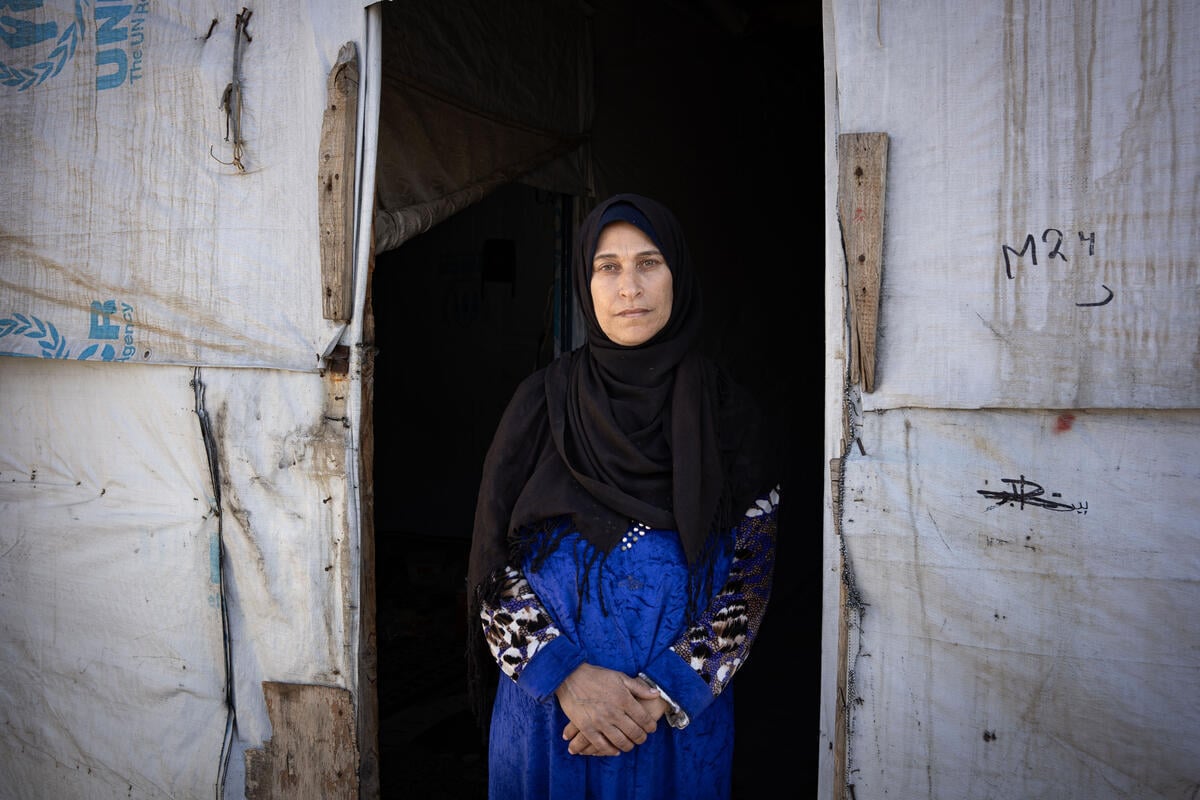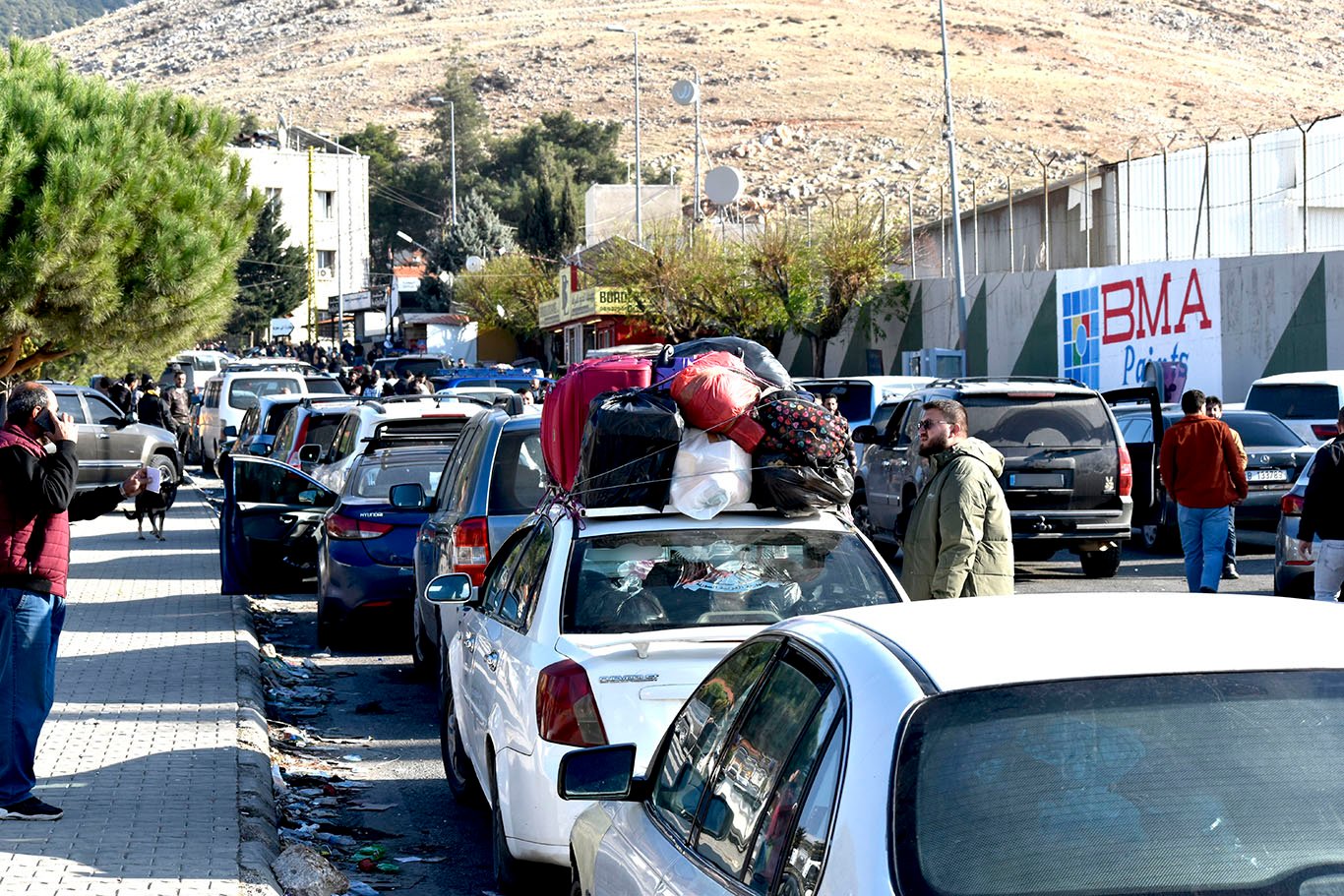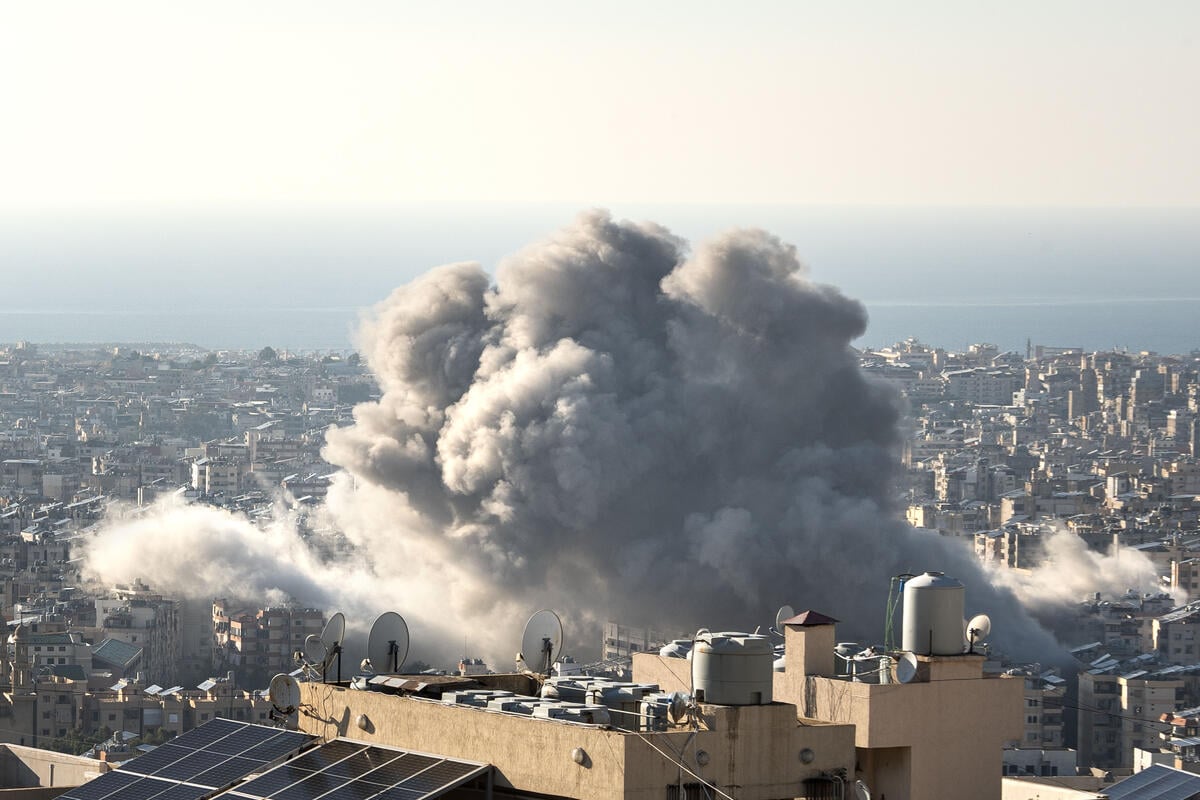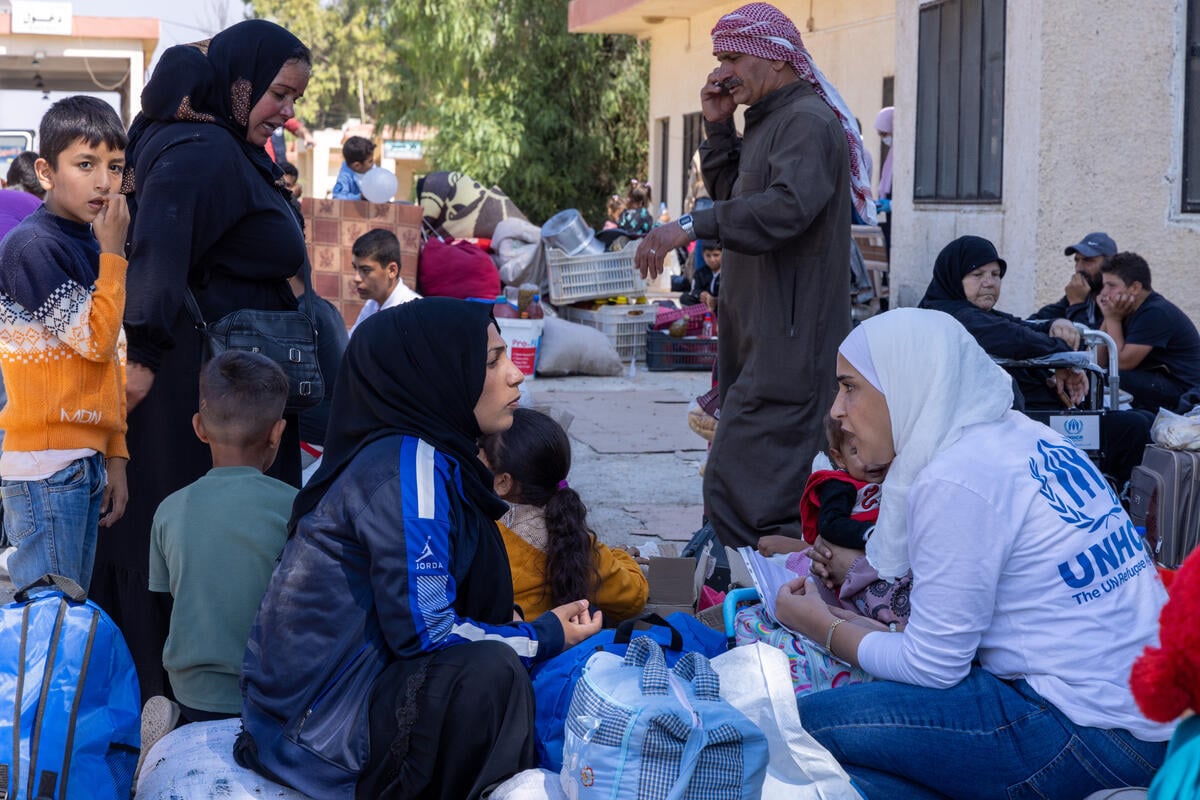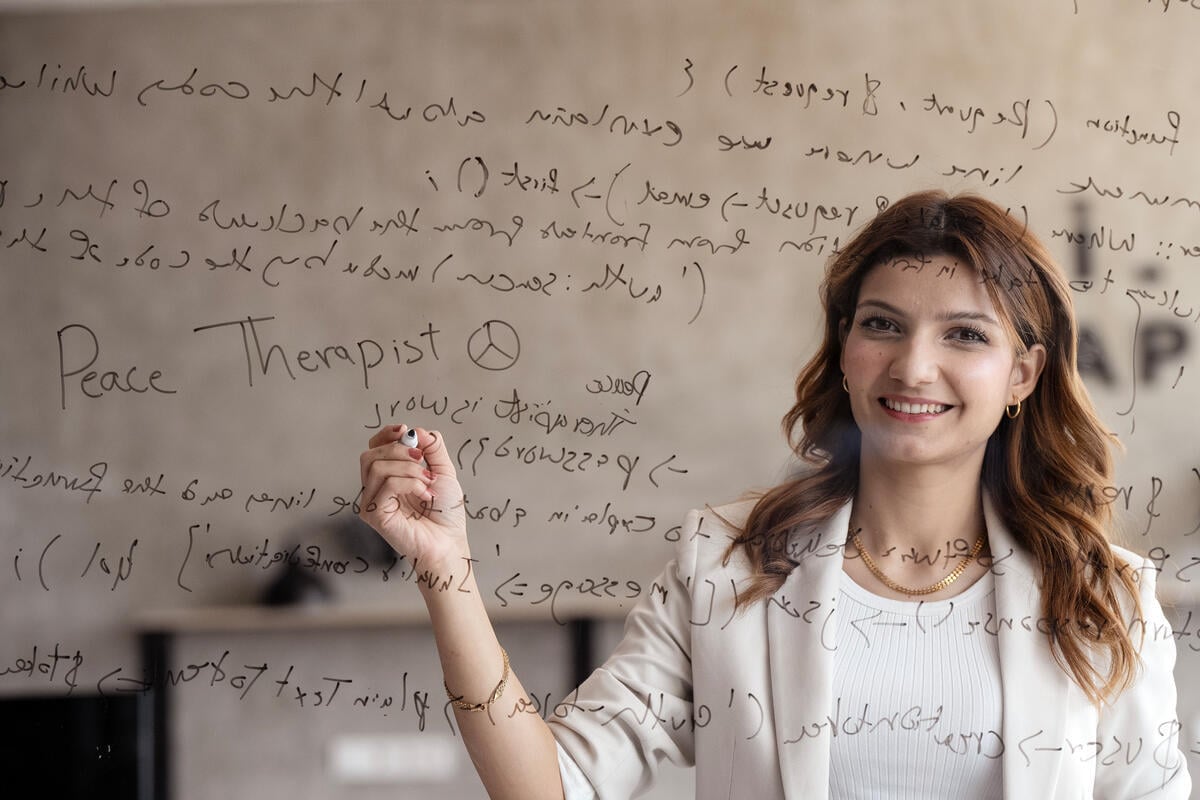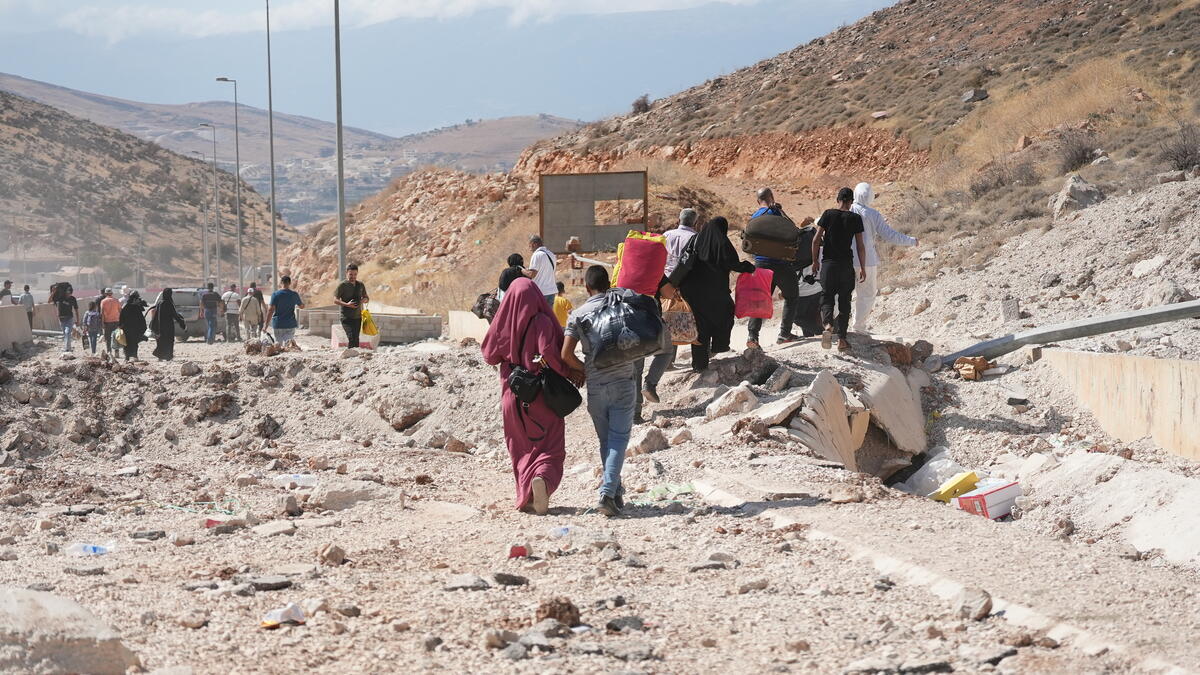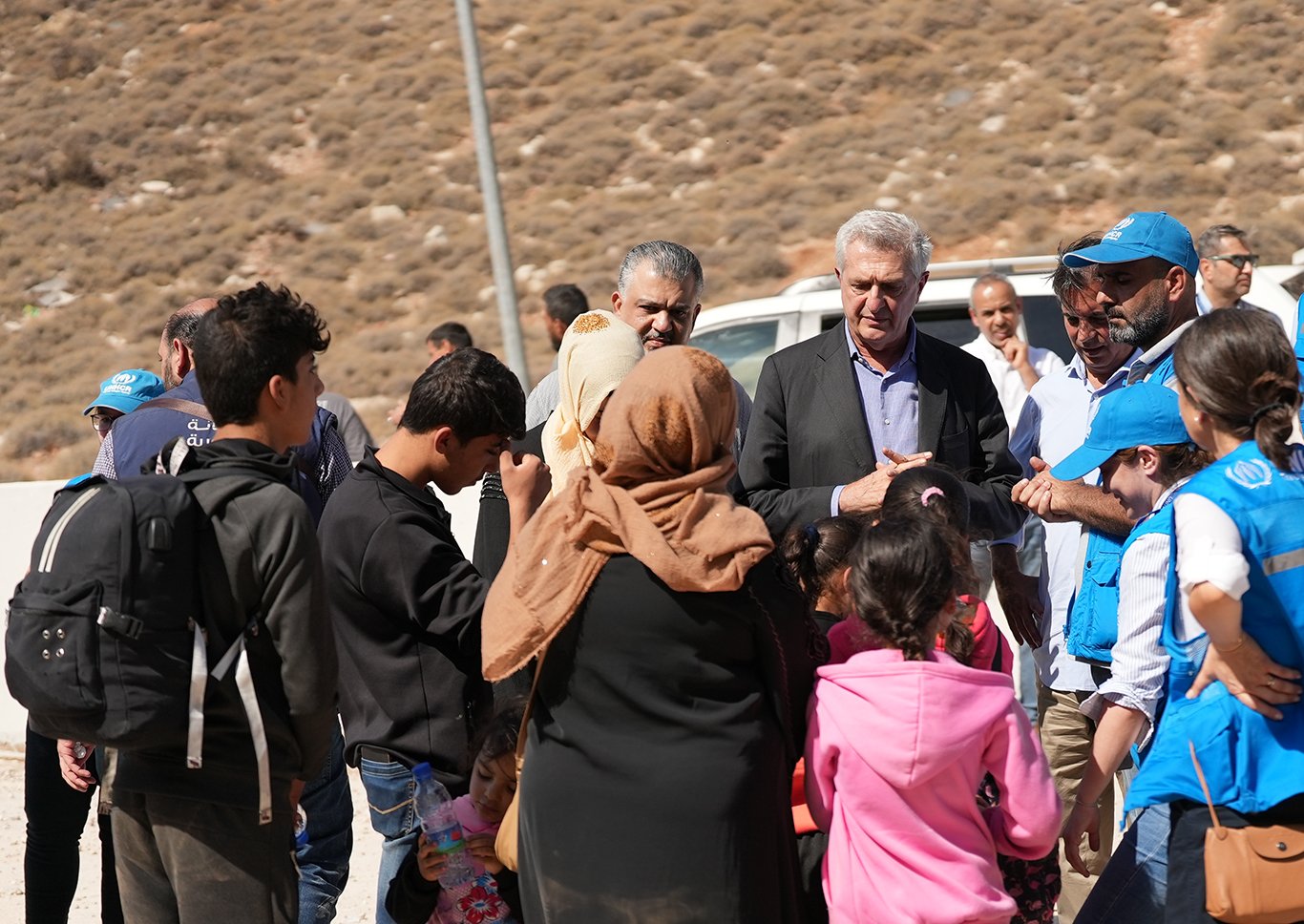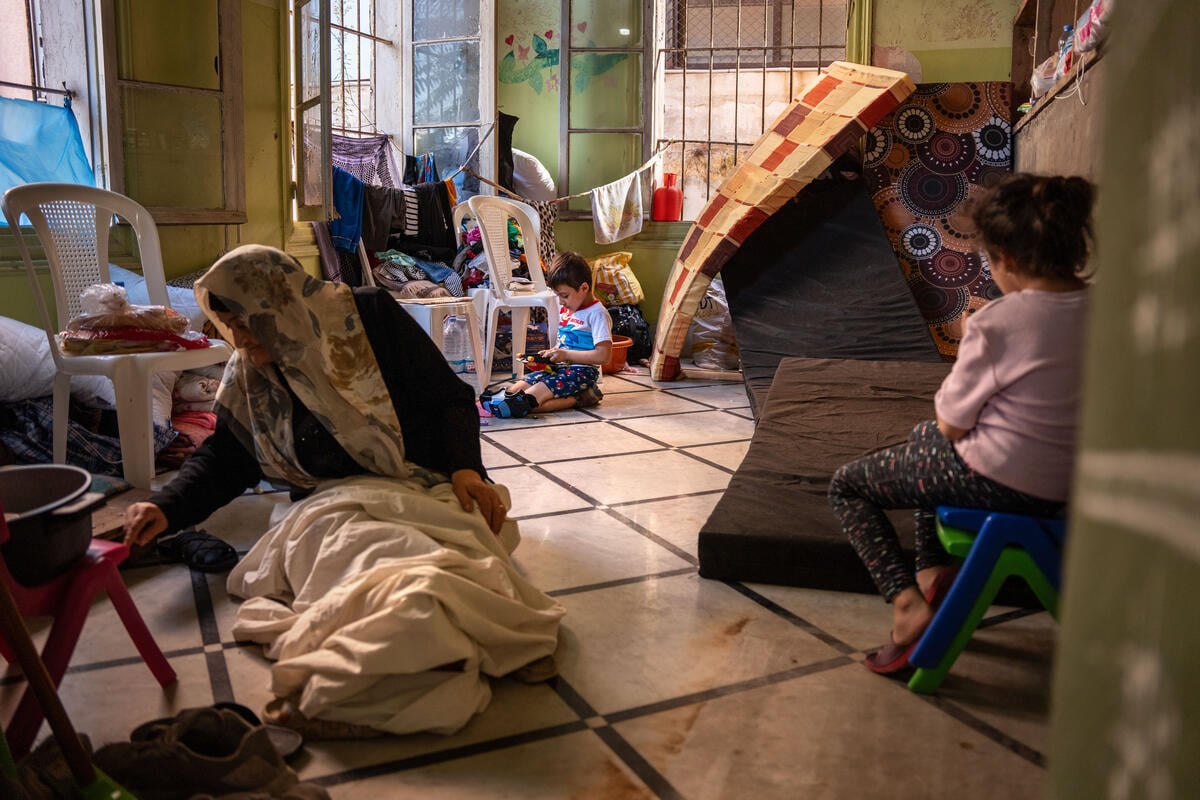Even with shifts, only some Syrians in Lebanon get into school
Even with shifts, only some Syrians in Lebanon get into school

FAYDA, Lebanon, 17 April (UNHCR) - "Miss Hanan" stands in the mud before her class - her cousins. She turns and writes with a chunk of chalky rock on the door of a makeshift shelter next to her own. The door is her chalkboard, this is her classroom and her class is learning English. She writes the letters of the English alphabet and then pronounces them loudly. The class repeat each letter in unison.
Miss Hanan is 11. Most of her class of seven are the same age or younger. "Miss Hanan" is what they call her; Hanan Abdel Garbou is the boss and she describes herself as very strict. She's also lucky, although at first glance you wouldn't think so. This is Fayda in the Bekaa valley and 70 Syrian refugee families live in makeshift shelters in the ruins of a burnt-out onion factory. UNHCR provides the materials, to build the shelters, the stoves and coupons for food to the refugees here.
Hanan goes to school in the so-called 'second shift'. Lebanon's crowded public schools now open their doors to one wave of pupils in the morning and to a second wave after 2 p.m. Most of the second shift are Syrian refugees, 90,000 of them. Every day Hanan takes the school bus stuffed with 60 other refugee children for a half-hour trip to a school in a nearby town.
"I'm the lucky one in the family," she says. "My older sisters have to work so we can live. They went to school in Syria and wanted to do their school leaving exams but they couldn't."
"We love school," a little boy, a member of her 'class', says loudly and slowly in English. But school for him and the other children in the mud is this door where Hanan has written the English letters. Only half the children in this settlement go to the "second shift".
There are now more than a million Syrian refugees in Lebanon and across the country less than a quarter of the 400,000 refugee children eligible for school actually get to go.
Dora is six and part of the class in the mud. Her aunt says quietly that when she sees the other children lining up for the school bus in the afternoon, she cries. School, real school, is a prize, a dream for many refugee children.
Not far away in the Bekaa valley, in Kamed El Loz, is another school and more English classes. This is the Amel international education centre, set up and funded by UNHCR. This could be called the 'third shift'.
There are 130 pupils here, ranging in age from 6 to 14. They come three times a week in the late afternoon. They have been spotted and recommended by their regular teachers because they need help.
"They have trouble with English," one of the seven teachers at the centre says. "Many of these pupils were taught to see English as the 'enemy' language. So some approach it with fear, some treat English classes as 'free time' and play around. They associate Arabic with their country. The refusal to learn English is linked to the loss of their country. That's what we're trying to overcome."
These are remedial classes and, along with the classes, there is a psychologist to lead discussion groups for pupils to look at their fear and anger.
Meanwhile in the classes themselves, there is dictation. "Is your father at work now?" The teacher reads out as the pupils write. "No, he's not at work now."
One of the best pupils is 12-year-old Nadine. On the wall a sign exhorts the pupils to "make the world a beautiful garden." But Nadine, in fluent English, talks of loss. "I miss my family most. I miss my country."
At the burnt-out onion factory the English class is wrapping up. There are only two sessions a week because 'Miss Hanan' has to work preparing food for her family and helping her mother wash and clean.
"I really like English," Hanan says after class. "And school is great."
Like many refugee children, she was forced to flee her home in Syria and became internally displaced and missed a year of school before coming to Lebanon. She began again in an "informal" school in a tent with a Syrian refugee volunteer teacher. Now she's in the Lebanese system and having to learn not only English but French, in which several subjects are taught.
For her, learning is a privilege, something she realized when she saw the younger sister of a classmate trying to copy letters one day after school. She offered to show her how, and her career began.
And when she grows up? "Oh, I want to be a teacher, an English teacher."
By Don Murray in Fayda, Lebanon


